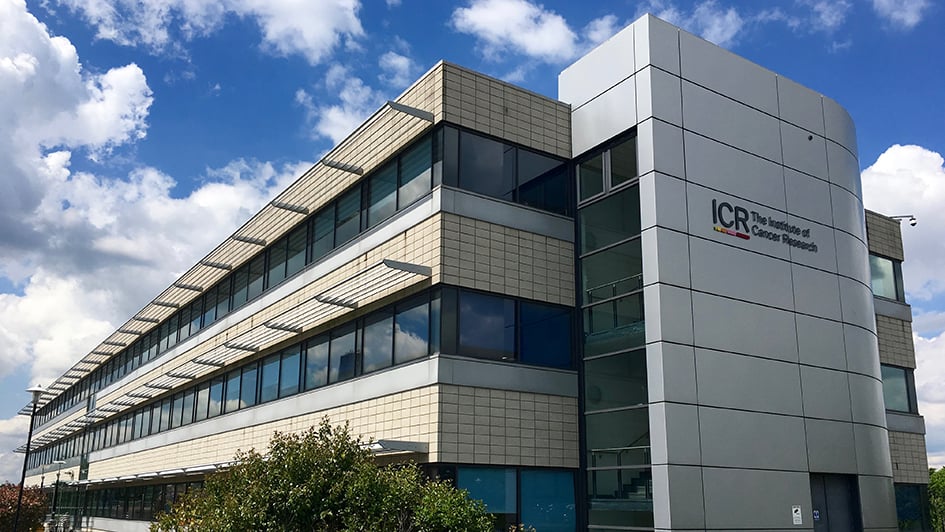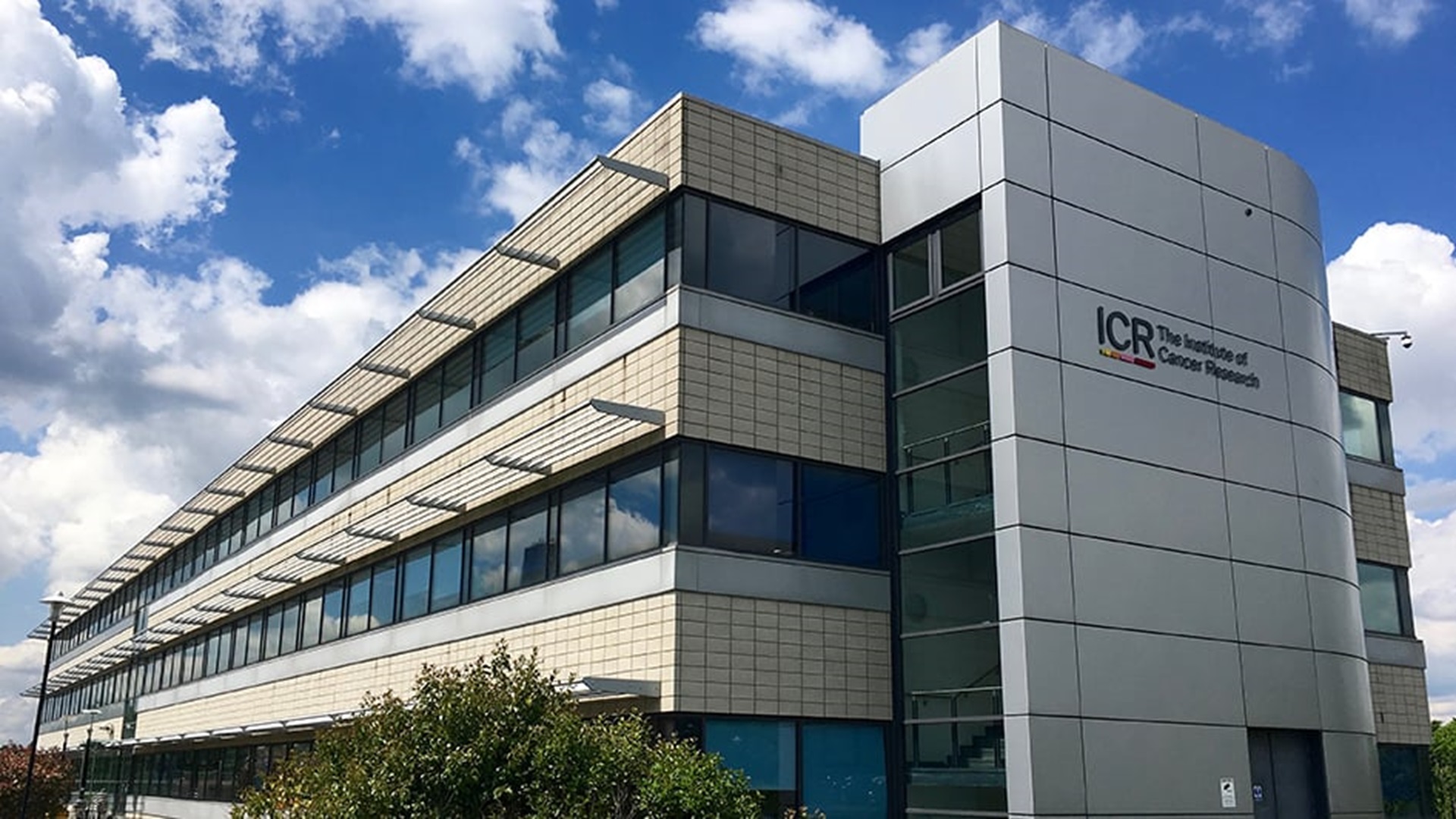
The Institute of Cancer Research has ranked among the top UK universities for research partnerships and commercialisation.
We were one of only two UK higher education institutions to gain the highest grades in all measures of both research partnerships and commercialisation in the latest Knowledge Exchange Framework.
We also gained the top grade for public and community engagement.
The Knowledge Exchange Framework – also known by its acronym, ‘the KEF’ – is a yearly assessment of how well UK universities work with external partners, local communities and the public.
It’s run by UK Research and Innovation (UKRI), which funds research at UK universities on behalf of the Government.
Research partnership
This year the ICR performed very well in both the two measures of research partnership. These metrics look at the proportion of universities’ academic papers that are published with non-academic co-authors, and at the proportion of their research funding that supports collaborative research.
We gained the top possible grade in these metrics due to our strong partnerships with industry and other academic institutions. Only five other higher education institutions gained the same grade.
Intellectual property and commercialisation
We also achieved the top grade in all three measures in the ‘intellectual property and commercialisation category’, alongside six other higher education institutions. These measure the proportion of universities’ income from licensing intellectual property to partners, and the turnover of, and investment in, their mature spinout companies.
Only the ICR and the University of Cambridge gained the top grade in all measures in both categories.
Other highlights of our KEF assessment included gaining the highest possible grade for public and community engagement, and an improvement in a score based on our income from Innovate UK. Innovate UK is part of UKRI and funds collaborative research between academic researchers and companies.
Industry partnerships
The ICR works in collaboration with around 100 industry partners at any one time, across areas from early-stage discovery science to early- and late-stage clinical trials of new cancer treatments.
Last year we made around 20 new industry collaboration agreements relating to joint research, as well as hundreds of other agreements with external partners – including around 250 commercial agreements, 150 clinical trial agreements and 400 non-commercial agreements.
We also signed dozens of licence agreements and filed several new patents.
New collaborations
This year, we won a major award for our work in collaboration with industry from life-sciences sector membership organisation One Nucleus.
Recent new collaborations include a partnership between our Centre for Immunotherapy of Cancer and the company QBiotics, and an Innovate UK-funded partnership between ICR childhood cancer researchers and the Bath University company Revolver Therapeutics.
Meanwhile, recent outcomes to emerge from our commercial collaborations have included regulatory approvals for Roche’s inavolisib in breast cancer, and Verastem Oncology’s avutometinib-defactinib drug combination in ovarian cancer.
We are also a leading research institution in collaboration with other universities – across the UK and internationally.
One highlight of the past few years is our involvement in the MR-Linac consortium – a group of universities and hospitals from across Europe and the US working with the company Elekta to develop their Unity device.
The Unity combines radiation treatment and Magnetic Resonance Imaging (MRI), enabling simultaneous imaging and treatment.
Spinout companies
ICR spinout companies include Monte Rosa Therapeutics – a leading company in the development of molecular glues, an innovative type of cancer drug.
Other recent ICR spinouts include Kodiform Therapeutics and AI-focused Sentinal4D. We recently changed our spinout policy to encourage even more of our scientists to found companies.
Public engagement
The ICR has gained the highest grade for public engagement in all five KEF assessments so far. Our public engagement team works with our researchers to support and inspire their efforts to inform the public about their science – including through community events and visits.
Our public engagement team also runs a programme of engagement events and activities, including showpiece careers evenings for local schools.
We work closely with our partners at The London Cancer Hub in Sutton, south London – including the Borough of Sutton and site developers Socius – to engage the local community in our science.
Dr Jon Wilkinson, Director of Business and Innovation at the ICR, said:
“We’re very proud of our strong track record in partnership – partnership with universities, and partnership with companies from across the wide landscape in oncology, from smaller and mid-size biotech to major pharma companies.
“It’s only by working together across different organisations and sectors that we’re able to make sure that our discoveries are translated into new, impactful treatments for cancer patients. Our collaborations also generate other major benefits to society, including stimulating economic growth.”
